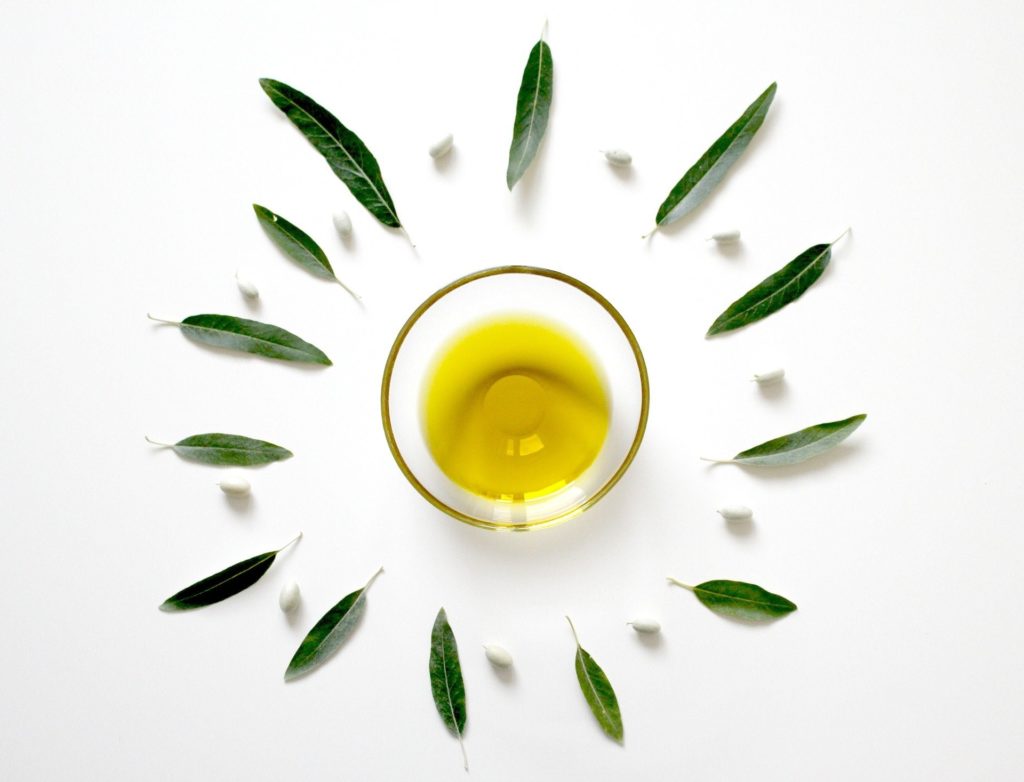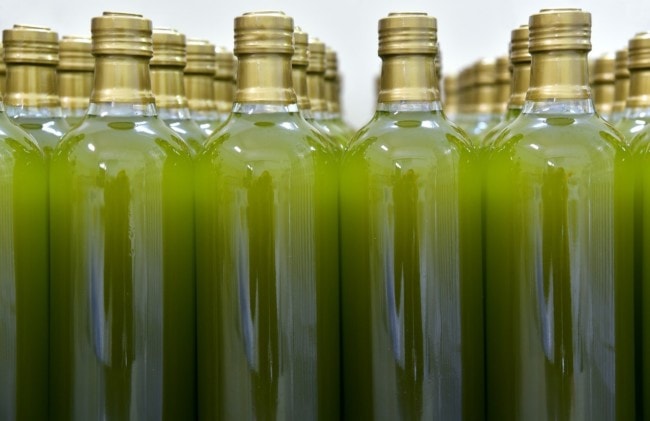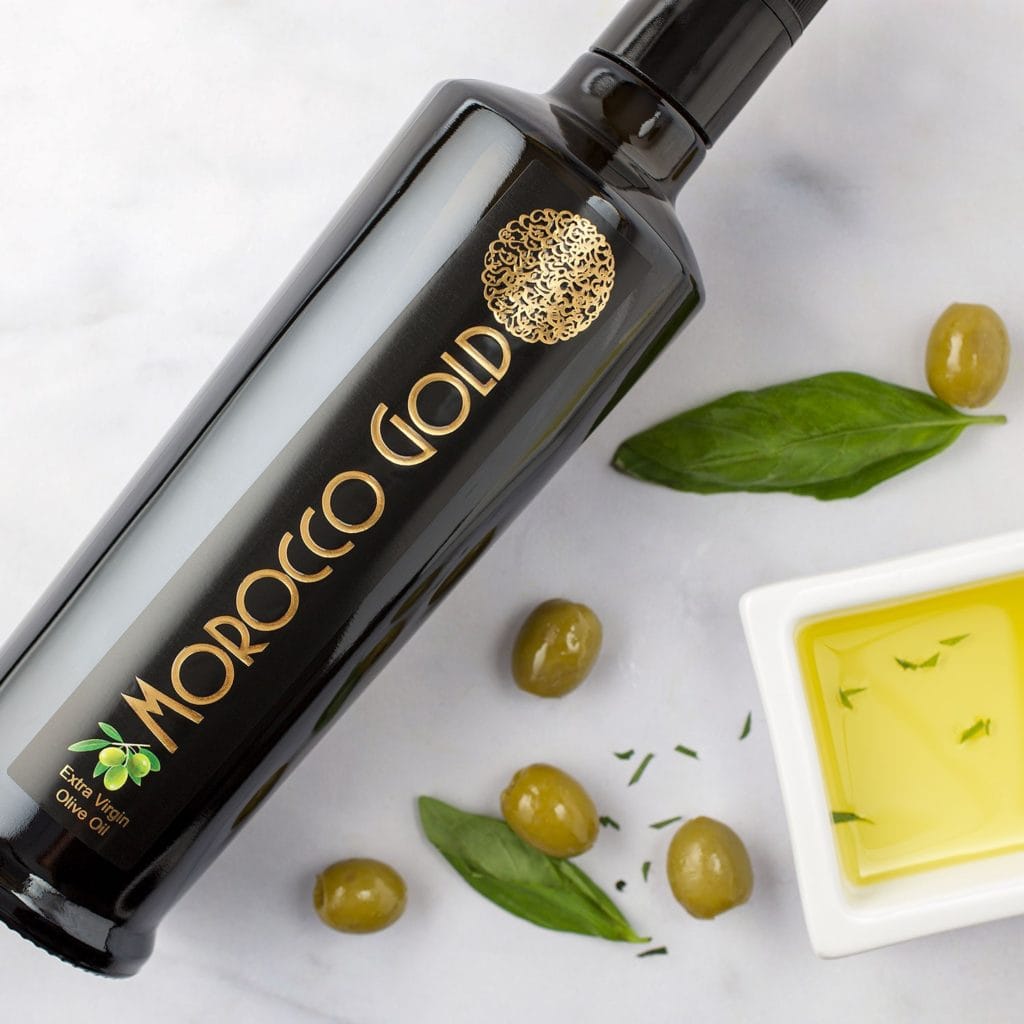And Which Is The Best Olive Oil For The Mediterranean Diet
Updated February 15th 2023

SUMMARY
- Extra virgin olive oil is widely regarded as the healthiest, best olive oil for a Mediterranean diet.
- It is praised for being particularly rich in polyphenols, which are powerful antioxidants that can reduce inflammation, improve heart health and even help protect against cancer.
- Additionally, extra virgin olive oil contains unsaturated fats which help lower cholesterol levels and make one feel more satiated.
- It also contains natural vitamins and minerals that are beneficial for optimal health.
- The natural flavor of extra virgin olive oils is sure to make any meal spectacular!
- All in all extra virgin olive oil is the perfect choice for a healthy Mediterranean diet!
CONTENTS
- Mediterranean Diet Voted Best For Sixth Year Running
- Extra Virgin Olive Oil : The Cornerstone Of The Mediterranean Diet
- Olive Oil Is The ‘Secret Sauce’ Of The Mediterranean Diet
- Grades Of Olive Oil
- Best Extra Virgin Olive Oil Is Single Estate
- Extra Virgin Olive Oil Is High In Heath Enhancing Poyphenols
Mediterranean Diet Voted Best For Sixth Year Running
The Mediterranean diet has been named the best overall diet by the U.S. News & World Report for the sixth straight year.
Mediterranean diet ranked best diet of 2023: Is it right for you?
The Mediterranean diet also ranked first in several individual categories, including the best plant-based diet, the best diet for healthy eating, and in two new categories, the best family-friendly diet and the best diet for the health of bones and joints.
According to Gretel Schueller, managing editor of health at U.S. News and World Report – “The reasons that the Mediterranean diet is popular are fairly simple. You’re eating delicious, whole foods. It’s backed by decades of research showing its health benefits for a variety of conditions. It’s healthy. It doesn’t cut out any food groups or specific foods. So, it allows it to be sustainable.”
She went on “Adhering to the Mediterranean diet can have an overwhelming number of health benefits. Scientific research has repeatedly demonstrated the Mediterranean diet’s ability to control diabetes, reduce obesity levels, reduce the risk of heart disease and prevent cancer, to name a few”.
Extra Virgin Olive Oil: The Cornerstone Of The Mediterranean Diet
There is an abundance of evidence to support the health benefits of Olive Oil – especially when consumed as part of the globally popular Mediterranean Diet. But, with several distinct types or ‘grades’ of olive oil available, which is the healthiest olive oil you can buy?
The answer lies in extra virgin olive oil, as it is cold-pressed and has a higher concentration of antioxidants and polyphenols which are beneficial to human health. The best extra virgin olive oil contains more beneficial compounds like oleic acid, which can help lower cholesterol levels, reduce inflammation and promote healthy tissue growth.
Additionally, extra virgin olive oil offers an abundance of monounsaturated fatty acids, including oleic acid, which helps raise good cholesterol levels (HDL) while decreasing bad cholesterol (LDL). Therefore extra virgin olive oil is seen as being one of the main components for maintaining a healthy Mediterranean diet as it provides numerous health benefits such as reducing the risk of heart disease, cancer and obesity.
Morocco Gold belongs to a family of olive oils which are the highest quality, and wholly natural of all – extra virgin olive oil. These are also the rarest of olive oils as they are the result of exceptional attention to detail at every stage in the production process.
Olive Oil Is The ‘Secret Sauce’ Of The Mediterranean Diet
The olive is a fruit and like most fruits, olives are rich in antioxidants. Olive oil is simply the juice from pressed olives. There are over 2,000 varieties of olives grown throughout the world, and each varietal has its own unique flavour profile. As a result, olive oil from one type of olive will taste different than those made with another variety of olive. Morocco Gold is made from the Picholine Marocaine Olive – renowned for its longevity, distinct green fruitiness, hints of pepperiness and exceptionally high in health enhancing polyphenols.
The basic procedure for making olive oil has remained the same for thousands of years: Harvest the olives, wash them, crush them into a paste, separate the solids from the liquid and further separate the water from the oil. No chemicals or solvents are used in this process.
Grades of Olives

Talking to health.usnews.com , Alexandra Kicenik Devarenne, an international olive oil consultant based in Petaluma in Sonoma County, California said: “The grades [of olive oil] indicate type and quality. Extra virgin is the highest grade and the highest quality.”
There are different grades of olive oil according to its level of acidity, or level of free oleic acid within the olive oil. The amount of free oleic acid in olive oil indicates the extent to which fat has broken down into fatty acids.
Olive oil also falls into two distinct categories: refined and unrefined. While unrefined oils are pure and untreated, refined oil is treated to remove flaws from the oil to make it more sellable.
There are five different types of olive oil:
- Extra Virgin Olive Oil
- Virgin Olive Oil
- Refined Olive Oil
- Olive Pomace Oil
- Lampante Oil
1/ Extra Virgin Olive Oil : The Highest Quality Olive Oil
Extra Virgin olive oil is a wholly natural, unrefined oil and the highest quality olive oil you can buy. Genuine extra virgin olive oil is rare and as a result is slightly more expensive. The definition of Extra Virgin olive oil is very precise regards production methods, taste and chemical composition.
To qualify as extra virgin olive oil, it is an olive oil of less than 0.8% acidity and has no taste defects. In practice, the very best extra virgin olive oils have acidity levels much lower. Morocco Gold extra virgin olive oil is consistently below 0.5%, normally around 0.25% to 0.3% depending on the weather conditions throughout the growing season.
Extra Virgin olive oil is completely natural. It is not treated with chemicals or altered by temperature. It is typically has a golden-green colour, with a distinctive fresh, green flavour and a light peppery finish.
How the fruit was grown, harvested and transported, how it was pressed into oil, and how the oil was packaged and bottled all contribute to ensure Extra Virgin olive oil like Morocco Gold is the best quality olive oil you can buy.
This means it is an olive oil of less than 0.8% acidity and has no taste defects.
Best Extra Virgin Olive Oil Is Single Estate:
This means that it is from one source and is not mixed or blended with other oils, (even if they are extra virgin olive oil).
The taste characteristics of best extra virgin olive oils are:
Fruity : having pleasant fruit flavours characteristic of fresh ripe or green olives
Bitter : with a mostly pleasant acrid flavour sensation on the tongue
Pungent : giving a distinctive peppery sensation in the mouth and throat. This is a sign of abundant nutrients in good, fresh extra virgin olive oil.
Tasting extra virgin olive oil is similar to wine tasting. You want to pour a small amount of the olive oil into a glass and place the bottom of the glass in the palm of your hand to warm up the oil. Gently swirl the glass to release the extra virgin olive oil aromas. Then sniff the olive oil and note the aromas – does it smell like grass or fruit?
Next, take a small slurp and suck the extra virgin olive oil to the back of your throat – this spreads the olive oil throughout your palate and helps release the flavours. Lastly, swallow your extra virgin olive oil and take note of the flavours and any bitterness or pungency. A good extra virgin olive oil will give you a slight burn after you swallow. This indicates the olive oil is rich in antioxidants called polyphenols. Bitterness at the back of your tongue tells you it’s pure.
Extra Virgin Olive Oil Is High In Heath Enhancing Poyphenols:

Thanks to the recent spotlight on the Mediterranean Diet, extensive research has been done on the phytonutrient composition of extra virgin olive oil What has been discovered is an extensive list of phytonutrients; one of the most praised is its polyphenols. The amount of polyphenols found in extra virgin olive oil is truly amazing!
Polyphenols are a potent antioxidant – one that can decommission a nasty molecule in your body called a free radical. Free radicals can ricochet around inside your body and harm good cells. Antioxidants, such as the polyphenols found in extra virgin olive oil, work to neutralize free radicals; protecting the body from their harmful effects.
The European Food Safety Agency has now approved health claims for extra virgin olive oils with a polyphenol content of more than 250mg / kg. The polyphenol content in Morocco Gold is well above this level.
2/ Virgin Olive Oil
Virgin olive oil also comes from the first pressing but must have an acidity level of less than 2%. It is therefore of inferior quality to extra virgin olive oil. It’s flavour intensity can vary and its taste is milder than extra virgin olive oil.
The higher level of acidity also means it’s shelf-life will not be as long as extra virgin olive oil.
3/ Refined Olive Oil
These are olive oils that have been refined by using agents such as acids, alkalis and heat to extract as much oil as possible from the olive pulp that remains after the first pressing. The result is a fattier and more acidic oil which lacks taste, aroma and natural antioxidants found in extra virgin olive oil.
Producers then need to add unrefined extra virgin or virgin olive oil to give refined olive oil some flavour, colour and aroma into the blend.
Terms such as “pure” or “100% pure” or “Light” are made up terms used by large producers and supermarkets. If the label states “pure” or “100% pure” or “Light” then the olive oil is a refined oil lacking the taste, aroma and quality of extra virgin olive oil.
4/ Olive Pomace Oil
The lowest grade of olive oil made from the by-products of extra virgin olive oil production. Olive skins, seeds and pulp are heated and the remaining oil is extracted using solvent. The result, pomace oil, is then put through a refining process, similar to pure or light olive oil.
Pomace olive oil is bland and extremely low in antioxidants.
5/ Lampante Oil
Lampante oil comes from bad fruit or poor processing practices and has severe taste defects. It is not fit for human consumption until it has been refined.
